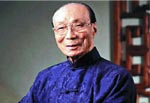A tricky conversation for Asian-American feminism
Updated: 2013-12-30 11:40
By Kelly Chung Dawson (China Daily USA)
|
||||||||
"It's a fair argument that Asian Americans earn more than other minorities, but what we lose in that conversation is that what privilege we have does not negate the discrimination we also face in the workplace," Fang said. "The notion that privilege and oppression are mutually exclusive is a way of denying the Asian American experience of discrimination, and a means of saying that we're too privileged to have disadvantages."
Contrary to the popular narrative, Asian American women do experience discrimination in the workplace, as demonstrated by a disparity in pay and employment not only with their white counterparts but also when compared to Asian American men.
According to a National Science Foundation study of Asian-American women working in the science, technology, engineering and mathematics (STEM) fields, Asian-American women are proportionately represented in university acceptance and attendance, but by 13 years after graduation, much more likely to be unemployed and earning between $10,000 and $20,000 less than their male counterparts. Asian-American women experience the highest rate of unemployment of any ethnic group, male or female, working in the STEM fields.
That gap is in part due to increased poverty (and fewer opportunities) for Asian-American women, of whom 12.3 percent are living in poverty, as compared to 9 percent of Asian men, according to the Center for American Progress.
Statistics released by the US Department of Labor and Statistics indicate that the population of Asian-American women earning less than minimum wage has doubled in the last five years.
The NSF study, entitled Women, Minorities and Persons with Disabilities in Science and Engineering in 2013, provides a limited view of the Asian American female experience, but in a field in which Asian Americans are disproportionately represented, the numbers can be extrapolated to be more accurate than fields in which Asians are scarce, Fang believes.
She speculates general difficulties in raising children play a role in the disparity of income and career success among Asian-American women.
Additionally, the fact that Asian-American men outnumber Asian-American women by double can create an environment in which women's opinions are less valued, she said. This isn't specific to the Asian-American experience, but it should be noted that Asian-American full-time faculty members are less likely to receive federal funding for research than their male counterparts. In fact, Asian-American men are more likely than any other ethnic group to receive funding in the STEM fields, according to the NSF study.
"These data are a clear indication to me that there's a conversation worth having about disadvantages Asian-American women - and women of other races - continue to face in the workplace," Fang said.
Contact the writer at kdawson@chinadailyusa.com
(China Daily USA 12/30/2013 page2)
Most Viewed
Editor's Picks

|

|

|

|

|

|
Today's Top News
China is now No 1 in trade
PANDA! opens in Las Vegas
Rich Chinese tourists looking to space
Deals 'blow' against separatists
Sharp fall in tourism hits Beijing
Sharon's legacy full of contradictions
Lenovo targets US, but when?
Embraer extends coverage in China's aircraft market
US Weekly

|

|















